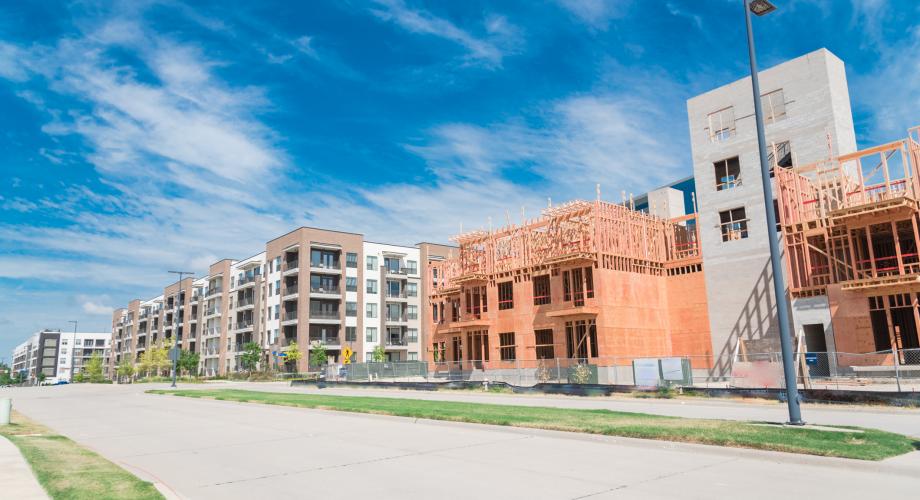There are no more hurdles to overcome for former Vice President Joe Biden, who will likely be handed the Democratic nomination for president of the United States in August. The suspension of Senator Bernie Sanders’ campaign earlier this month signaled the end of a bizarre, crowded and often contentious Democratic Primary race.
The implications of COVID-19 forced both candidates to cancel all in-person rallies, opting instead for virtual gatherings to push their strategic visions for America. While each previously focused on the finer points of infrastructure and education, both candidates began to illustrate how their administrations would tackle moments of disaster and pandemic. For Biden, his playbook would include a national freeze on rent and evictions lasting 120 days.
As a nation, our focus has been squarely on remaining safe and healthy during these unprecedented times. It is important to remember, however, that this crisis will end and, as many Americans go into survival mode, housing policy will skyrocket to the forefront of the presidential election stage. It is critical that rental housing owners and operators stay engaged in the conversation to ensure the industry’s voice is heard in policy debates moving forward.
The Democratic candidate pool, at its peak, was filled with close to 30 contenders. Policy solutions across a variety of issues were bound to overlap among the candidates. However, Biden was the very last candidate to introduce a housing strategy, which has made his plan resemble more of a clearinghouse for policies both helpful and harmful to the industry.
Released days before the February 29 South Carolina Primary, The Biden Plan For Investing In Our Communities Through Housing is a $640 billion behemoth that begins with a call to increase our nation’s housing stock. This will include the establishment of a $100 billion Affordable Housing Fund that will allocate money for a variety of functions, including $65 billion to incentivize housing development in communities with the most need, $20 billion for the expansion of the Housing Trust Fund (HTF), $10 billion in assistance for energy efficiency retrofits of housing and $5 billion to expand homeownership opportunities for low-income families. Every Democratic candidate agreed that tackling the housing shortage across the United States was a priority issue for their campaign.
Under Biden’s housing plan, both the Low-Income Housing Tax Credit (LIHTC), a key driver in the development of affordable housing, and the Community Development Block Grant (CDBG) program will each receive $10 billion expansions. This new investment will expand the number of affordable housing units built in communities across the country, leverage greater private capital in development and drive down the cost of housing for renters and operators alike.
Like many of his fellow candidates, Biden’s plan recognizes the upward pressures that certain state and local regulations can have on the cost of developing and operating housing. Biden plans to tie federal investment in states and municipalities to their commitment to eliminating policies that prevent new housing starts.
Biden’s plan also embraces the adverse policies of former candidates that restrict the abilities of housing providers to do their jobs and will, ultimately, contribute to a decline in the quality and affordability of housing for all renters. For instance, the plan would introduce a federal Renters Bill of Rights, stripped from the housing plan of Sen. Elizabeth Warren (D-Mass.). While the proposal is well-intentioned, renters are aware of their rights and responsibilities as this information is already covered in the leases they sign at the beginning of their tenancy. In addition, renters are already able to research any applicable federal, state or local renter protection via the internet or by contacting legal aid. Such a proposal may place an unnecessary administrative burden on housing providers and create an unequal shift in the operator-renter relationship.
Biden also supports the creation of federal right-to-counsel standards, pushed by former candidates and first established by Sen. Michael Bennet (D-Colo.). Mandating legal access for individuals facing eviction can open entire residential communities to new safety concerns. More importantly, this policy does nothing to address the root cause of evictions: the ongoing financial instability experienced by America’s renters.
The plan also details a federal renter’s tax credit, first proposed by Sen. Cory Booker (D-N.J.). The tax credit would refund the difference between 30 percent of an individual’s income and their rent. However, this tax credit fails to offer a solution to the nation’s housing shortage. It also could incentivize bad actors to raise housing costs, thus deepening the affordability crisis. Instead, Biden should refocus on means-tested programs that help those most in need.
Biden’s plan does include a commitment to fully fund the Section 8 Housing Choice Voucher (HCV) program in an effort to get more Americans in safe, quality and affordable housing. However, it does not address much needed improvements to the program, including easing burdensome requirements and administrative inefficiencies that discourage housing provider participation.
With the nomination well within his grasp, Biden will likely be our Democratic contender. Yet there are many more facets of his campaign that will need to be analyzed to determine the full impact of his housing plan. The former vice president’s running mate and cabinet will be highly influential, especially if they include former presidential hopefuls who have already influenced his housing plan. Also, with Bernie Sanders’ endorsement, we should expect to see Biden move further left in his policy positions to appease Sanders’ supporters and increase his voter base. The race for the White House is far from over.
The National Apartment Association (NAA) will provide ongoing coverage of the 2020 Presidential Election Cycle highlighting its importance to the rental housing industry. Stay tuned for more spotlights on candidates’ housing policies, debate analysis and much more. For more information on the 2020 Presidential Election, please contact NAA Manager of Public Policy, Sam Gilboard.
